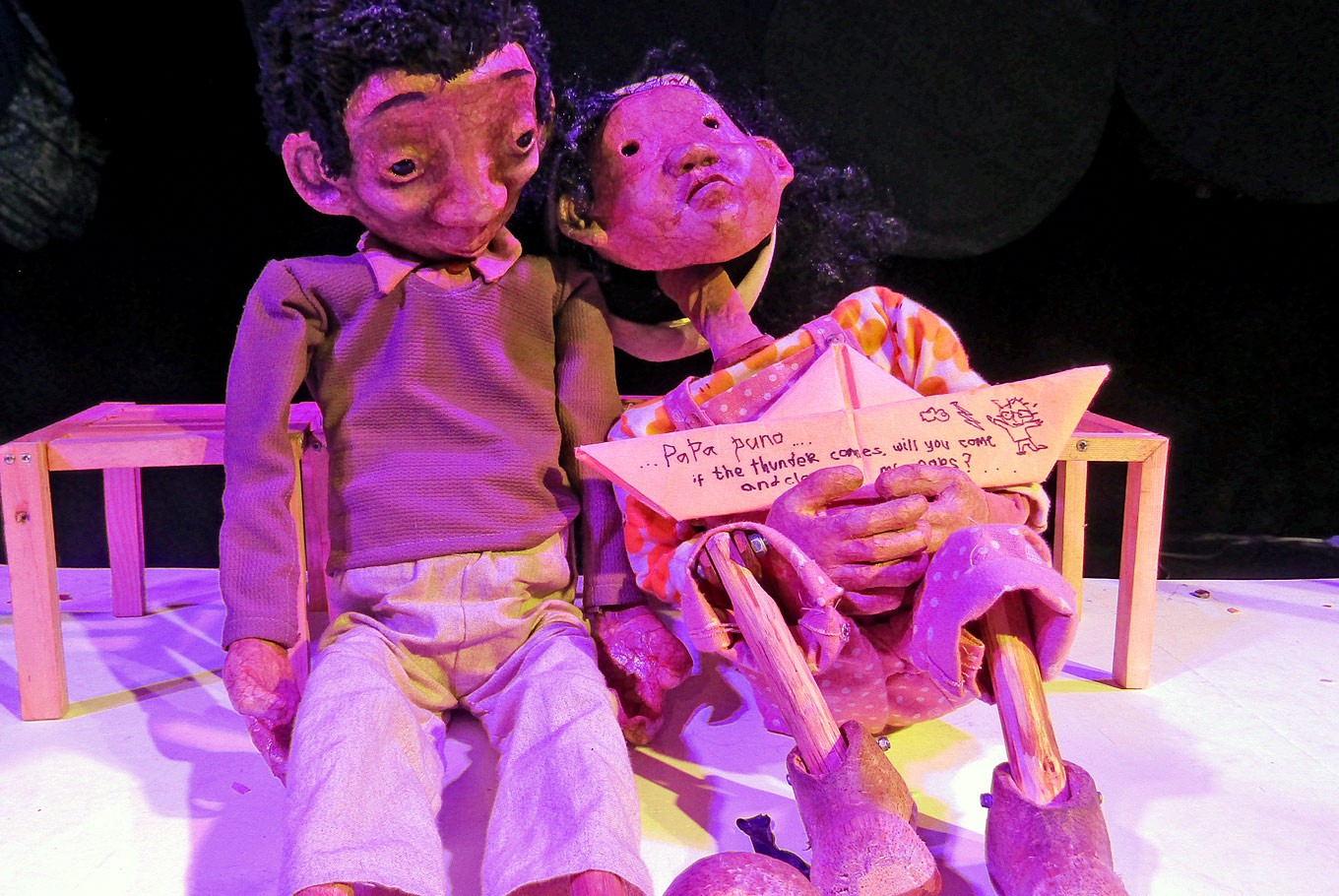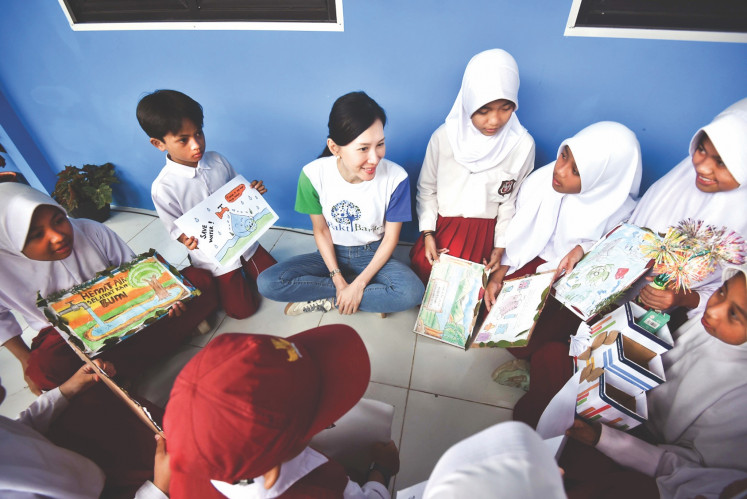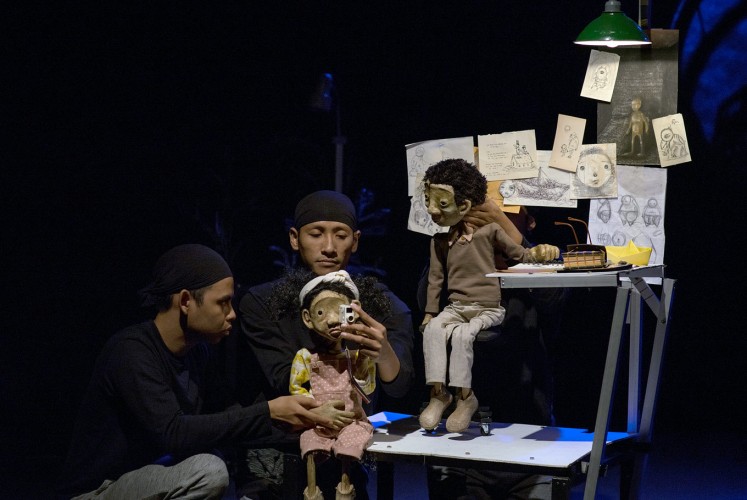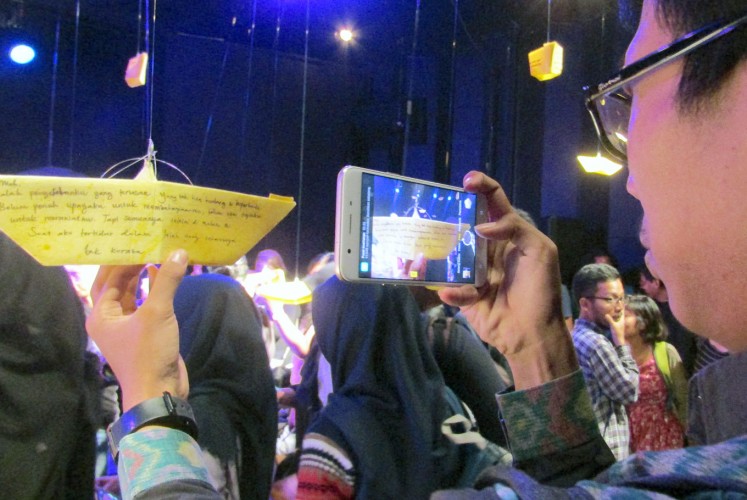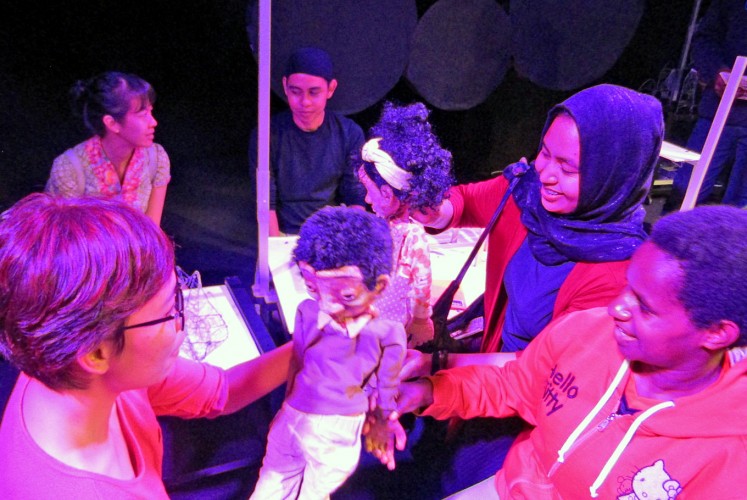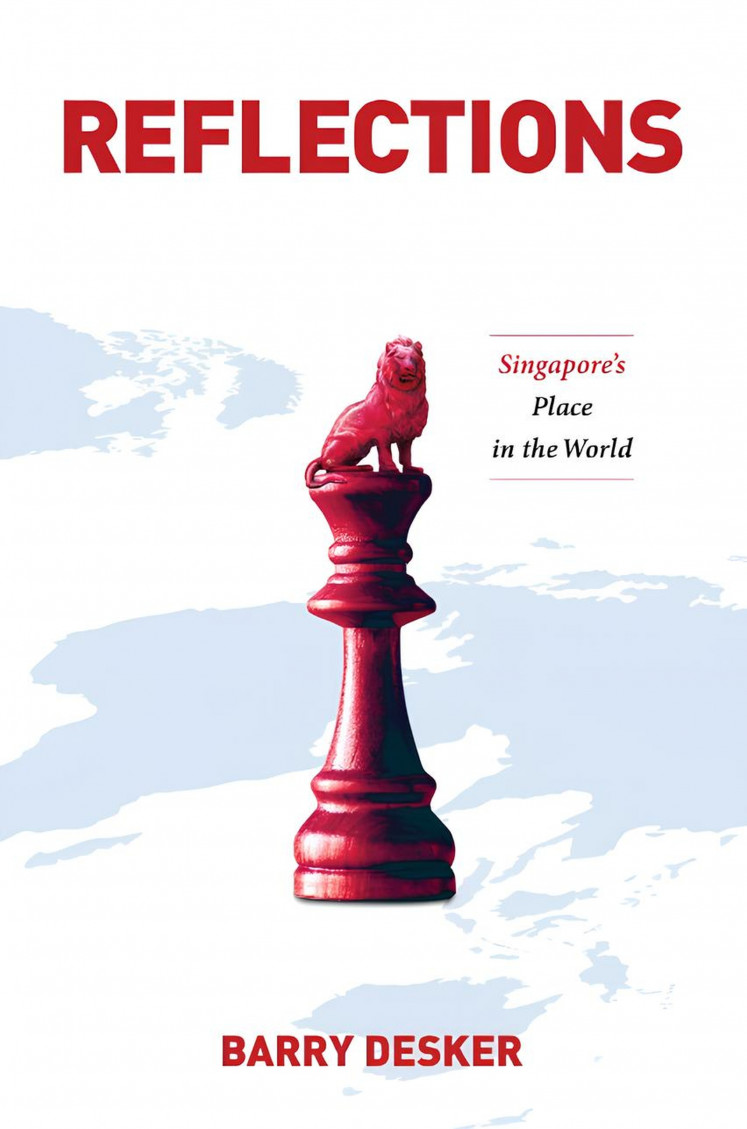Popular Reads
Top Results
Can't find what you're looking for?
View all search resultsPopular Reads
Top Results
Can't find what you're looking for?
View all search results'Puno' is Papermoon's message of love and loss
Death is inevitable and therefore, everyone must come to terms that one day their loved ones will be gone.
Change text size
Gift Premium Articles
to Anyone
P
apermoon Puppet Theater group delves into the struggle and devastation of dealing with the loss of loved ones in its latest play Puno.
The group recently performed Puno at the Institut Francais d’Indonésie (IFI) cultural center in Yogyakarta from July 5 to 8
It also marked the start of Papermoon’s Southeast Asian tour to Thailand, Singapore and the Philippines.
The group was founded by Maria Tri “Ria” Sulistyani in 2000 in Yogyakarta, and later began collaborating with visual artist Iwan Effendi. Its previous works include Laki-Laki Laut (Seamen), Secangkir Kopi dari Playa (A Cup of Coffee From Playa), Mwathirika and Watugunung.
Puno got such an overwhelming reception that the originally planned six performances were increased to 10.
“On the first day of Puno, 627 tickets were sold out within 30 minutes,” said Ria, who is also a script writer.
Accompanied by music by Yennu Ariendra, Puno features minimal dialogue and depends on the movements of its puppets, controlled by four puppeteers for 45 minutes, to convey emotions ranging from elation to sadness.
Father and daughter: Puppets of the characters Puno (right) and his daughter Tala (second right) are seen playing in their “home”. (Papermoon/File)Ria explained that Puno was a reproduction of an earlier work, Surat ke Langit(Letter to the Sky), produced in 2009. It carried the theme of friendship and was dedicated to a friend and former Papermoon partner M. Salubayba, an artist from the Philippines who died from an aneurysm.
“Puno is about the relationship between a parent and child. It was designed to be watched by parents and their children,” she said.
The play tells the story of a father named Puno (“tree” in Tagalog) who lives happily with his daughter, Tala (“star” in Tagalog). They spend much of their free time together, walking around the city and through the forest, telling jokes in a park while enjoying ice cream.
In Puno, Papermoon used the play of shadow and light to present the story while also interacting with the audience through the character of Puno, who at one point gives flowers to a member of the audience, which never fails to draw laughter.
A loving father, Puno frequently brings Tala toys. One of these toys is a paper boat. Sadly, their happiness comes to an end when Puno falls ill and dies.
The foreshadowing of his death comes in the form of a stout puppet called Red Cloud, the spirit of one of Puno’s ancestors who flies toward Puno.
“It is said that those who are about to die are approached by the spirit of an ancestor,” Ria said.
Tala is devastated by her father’s death, but so is Puno, who is unaware that he has died. He calls out to Tala but she cannot hear him, and he attempts to hug his daughter but cannot touch her.
This scene is reminiscent of one in the movie Ghost directed by Jerry Zucker in 1990. In this movie, Sam Wheat (Patrick Swayze), who has been murdered, wants to embrace his lover, Molly Jensen (Demi Moore), but fails.
In her grief, Tala realizes that the spirit of her father is with her for 40 days from the time of his demise.
Ria seems to have taken this plot element from Javanese culture, which believes that the spirit of the dead remains at home for 40 days.
So, Tala spends the 40 days touring with Puno, exploring the city and forest. On the 40th day, Tala, feeling very sad as they must now part, sits along the shoreline. She places the paper boat that was given to her by her father on the water and pushes it out to sea.
The boat bears the words, “Papa Puno, if the thunder comes, will you come and clear my tears?”
The show comes to an end and paper boats decorating the stage are lowered so they can be touched and seen by the audience.
Meet and greet: Audience members interact with Puno and Tala at the end of the show. (JP/Bambang Muryanto)The boats carry messages for loved ones who have died, written by netizens who responded to Ria’s request for them on social media.
Each night, audience members can be seen reaching for the boats and reading their messages. Some take pictures with the puppets of Puno and Tala.
“In various cultures, boats are seen as vehicles that lead to the afterlife,” Ria explained.
Many audience members left the theater with tears still fresh in their eyes.
One of them was Furqon Ulya Himawan, a Yogyakarta journalist.
“I remember my father who passed away several years ago,” he said.
Ria said Puno was created to dismiss the taboo of parents talking about death with their children.
“I hope parents and children can talk about death because many people are incapable of experiencing the feeling of loss,” she said.

